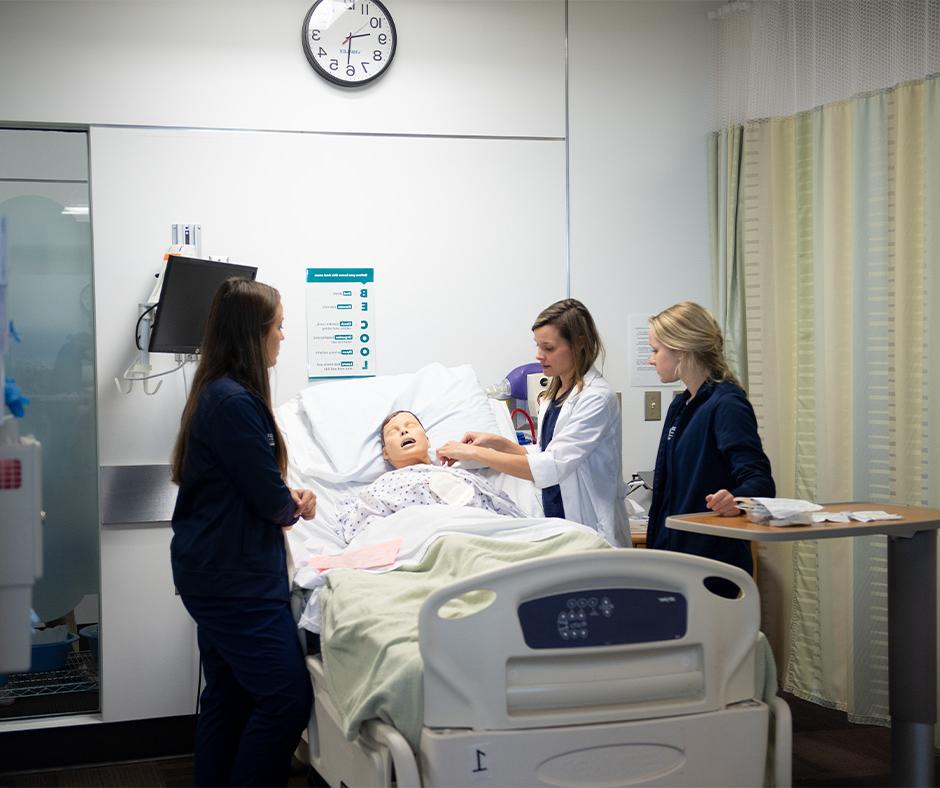Choosing Primary Care vs. Acute Care for Your Nurse Practitioner Specialty

Choosing Primary Care vs. Acute Care for Your Nurse Practitioner Specialty
 In the ever-evolving landscape of healthcare, nurse practitioners (NPs) play a critical role in providing patient-centered care. 其中, primary care nurse practitioners and acute care nurse practitioners stand out as two distinct arms of healthcare delivery. While both share the core values of compassion and medical expertise, 他们的角色, 责任, scopes of practice are very different. How do you decide which is right for you? Let’s examine the differences that set primary care nurse practitioners and acute care nurse practitioners apart.
In the ever-evolving landscape of healthcare, nurse practitioners (NPs) play a critical role in providing patient-centered care. 其中, primary care nurse practitioners and acute care nurse practitioners stand out as two distinct arms of healthcare delivery. While both share the core values of compassion and medical expertise, 他们的角色, 责任, scopes of practice are very different. How do you decide which is right for you? Let’s examine the differences that set primary care nurse practitioners and acute care nurse practitioners apart.
Primary Care Nurse Practitioners
Primary care nurse practitioners (PCNPs) work with patients to build a foundation of preventive care and health maintenance. They form lasting relationships with their patients, emphasizing holistic well-being and disease prevention.
Key Responsibilities of PCNPs
- Conduct comprehensive health assessments and medical history evaluations.
- Diagnose and treat common illnesses, injuries, chronic conditions.
- Provide vaccinations, screenings, health education to promote wellness.
- Manage patients with chronic conditions, offering personalized care plans.
- Collaborate with other healthcare professionals to coordinate holistic care.
Characteristics of PCNPs
- Strong communication skills to establish rapport with patients and engage in meaningful conversations about health goals.
- Patient advocacy and education to empower individuals in taking charge of their health.
- Focus on preventive care, emphasizing lifestyle modifications and early intervention.
- Long-term relationship building to ensure continuity of care and comprehensive health management.
Acute Care Nurse Practitioners
In the fast-paced field of acute care, nurse practitioners with a specialization in acute care (ACNPs) provide timely, 斯威夫特, efficient care to patients facing sudden and critical health challenges.
Key Responsibilities of ACNPs
- Assess and manage patients with complex, acute, critical conditions.
- Order and interpret diagnostic tests, such as X-rays, MRIs, laboratory tests.
- Develop and execute treatment plans, including medication administration and monitoring.
- Collaborate closely with physicians, surgeons, other specialists in a multidisciplinary setting.
- Respond to emergencies and make 斯威夫特 decisions to stabilize patients' conditions.
Characteristics of ACNPs
- Rapid decision-making skills and adaptability to fast-changing clinical situations.
- Proficiency in critical thinking and clinical judgment to provide precise interventions.
- Ability to work under pressure and in high-stress environments, prioritizing patient safety.
- Expertise in interpreting diagnostic data and integrating it into treatment plans.
- Collaboration and communication skills to ensure seamless teamwork among healthcare professionals.
Primary care nurse practitioners and acute care nurse practitioners are essential healthcare providers. Both roles exemplify the remarkable capabilities of nurse practitioners and their unwavering dedication to improving patients' lives and providing patient-centered care. Examine your interests, personality, temperament to determine which fits you best.
The 研究生 School at Cedarville University offers online, Christian Master of Science in Nursing and Doctor of Nursing Practice programs with tracks in family nurse practitioner, pediatric nurse practitioner, adult-gerontology acute care nurse practitioner. New cohorts begin in August, January, May, applications are reviewed and accepted year-round.
张贴在 研究生 MSN 成人老年学 MSN Family Nurse Practitioner MSN Pediatric Nurse Practitioner

















